Science is seen as an integral part of modern culture and essential for the future development of society. We recognise that science has the potential to stimulate and excite pupils’ curiosity as well as to stretch their imagination and creativity. Science can also satisfy curiosity with knowledge and the skills to collect evidence through first-hand observation and investigation.
At Ashford CE Primary, our aim is to give all children a strong understanding of the world around them whilst acquiring specific skills and knowledge to help them to think and work scientifically. Our curriculum gives children an understanding of scientific processes and provides the foundations for understanding the world through the specific disciplines of biology, chemistry and physics. Children are taught to think about the uses and implications of science, today and for the future.
We follow the objectives of the National Curriculum and have planned our units so that there is coherent progress across the year groups; knowledge is built upon throughout the school. Science is taught as a separate lesson on a weekly basis but cross-curricular links are made explicit to help children understand that science encompasses every aspect of our daily lives. For example, non-fiction science texts are used in guided reading and science units are linked to theme topics. Opportunities to enhance the teaching of mathematical skills are identified in each unit of learning. We also continually encourage children to read science texts for pleasure whether they are at home or school. Our curriculum is planned to be inclusive therefore lessons are planned to be accessible to all.
We ensure that the skills required to work and think scientifically are developed progressively throughout children’s time at the school; they can apply their knowledge of science when using equipment, conducting experiments, building arguments and explaining concepts. Key scientific terminology is explicitly taught, and children are encouraged to use this vocabulary and explain their thoughts clearly both orally and in written work. We want children to continually ask questions and be curious about their surroundings.
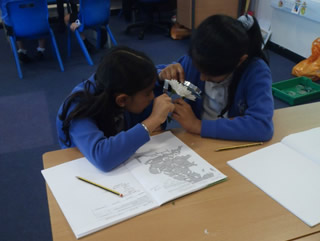
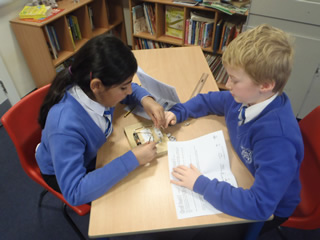
Computing is an exciting and popular part of the school curriculum. For most of us, technology is essential to our lives, at home and at work. Our computing curriculum has been developed to equip our children with the foundation skills, knowledge and understanding of computing they will need for the rest of their lives.
During their time in KS1 and KS2, the children will learn how computers and computer systems work; they will design and build programs, develop their ideas using technology and create a range of content.
The computing curriculum is divided into three key areas:
Computing is taught weekly, and we are blessed to have new set of laptops, as well as class sets of tablets.
Each year we celebrate Internet Safety Day; a specialist day that focusses on a different theme. It is a valued time in school where all stakeholders to join together to make the internet a safer and better place for all, and especially for children and young people.
We work with a wide range of networks and associations to support our community in keeping up to date with changes, as well as providing out parents with online safety guides to help keep all of us safe in a digital world.
Check out some helpful Online Safety guides in our ‘Keeping your child safe’ section.
We know that learning a foreign language is easier when you are young and our approach to the study of French is to introduce simple conversational words and phrases from an early age. Children are introduced to French in Year 3 with weekly lessons which help them to gain in confidence and enjoy both the language and learning about French cuisine, schooling and pastimes.
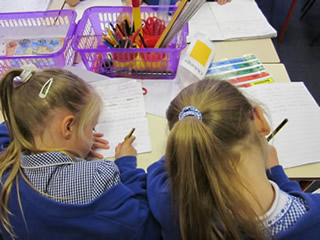
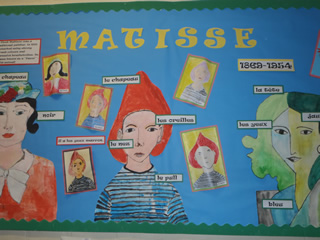
We believe PE is essential to the development of the whole child – academic, social, emotional, cultural, spiritual and physical. It provides the foundation for a healthy lifestyle and promotes character building, co-operation and self-esteem.
PE educates young people in and through the use of the body and its movement. It aims to develop physical competence so that pupils are able to move efficiently, effectively and safely and understand what they are doing. It is essentially a way of learning through action, awareness and observation.
Each element of PE is usually taught as a block of lessons to ensure that the children develop particular skills before moving on to another element. We aim for children to take part in 2 hours of high quality PE each week. If a lesson is lost in any one week, an alternative time is normally found to make up the time.
We also provide a range of opportunities out of school hours for our children to participate in sports and games. We take part in a range of competitive sports both within the school and with other local schools.
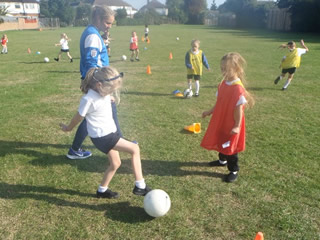
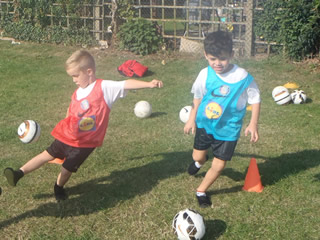
We also teach many other subjects throughout the year, look out for more information soon.